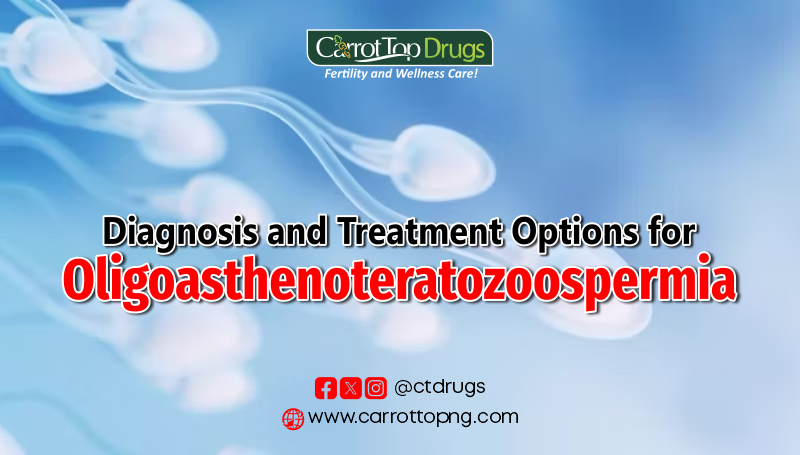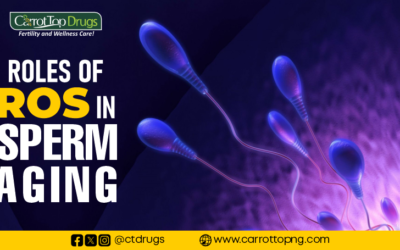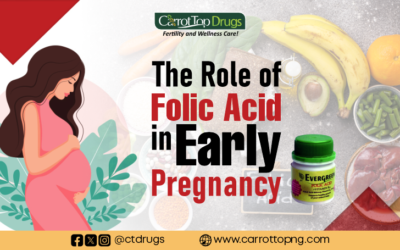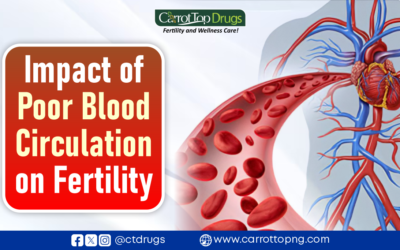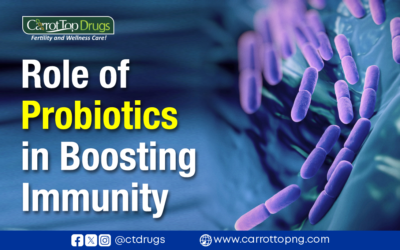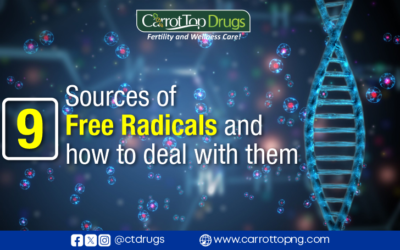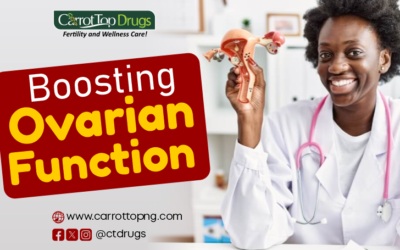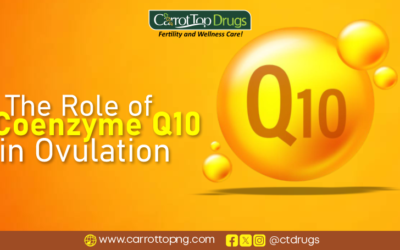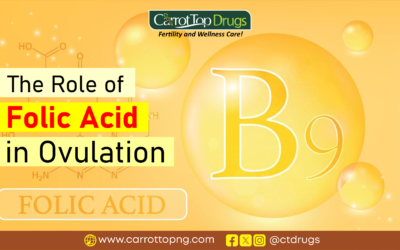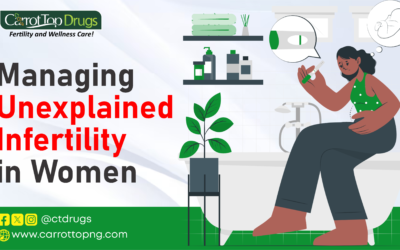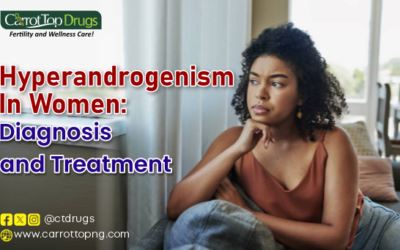Introduction
Oligoasthenoteratozoospermia is a condition in male fertility where there is low sperm count, reduced sperm motility and elevated quantity of abnormal sperm cells. This poses a huge threat to fertility in men. In this article, we would examine how diagnosis is made and the treatment options that are available.
Diagnosis of Oligoasthenoteratozoospermia
Diagnosing oligoasthenoteratozoospermia involves a comprehensive evaluation of various factors influencing male reproductive health. The process aims to identify and understand the extent of challenges related to sperm count, motility, and morphology.
Clinical History and Physical Examination:
Every diagnosis begins with a detailed clinical history, including questions about lifestyle, medical history, and any previous fertility concerns. A thorough physical examination helps assess any potential anatomical issues or signs of hormonal imbalances.
Semen Analysis:
Semen analysis stands as a cornerstone in diagnosing oligoasthenoteratozoospermia. This laboratory test evaluates various sperm parameters, including sperm count, motility, and morphology. A low sperm count, poor motility, and abnormal morphology are indicative of oligoasthenoteratozoospermia.
Hormonal Assays:
Hormonal imbalances can contribute to male fertility issues. Blood tests measuring hormone levels, such as testosterone and follicle-stimulating hormone (FSH), help identify hormonal irregularities that might be associated with oligoasthenoteratozoospermia.
Genetic Testing:
Genetic factors play a significant role in male fertility. It can identify inherited abnormalities.
Transrectal Ultrasound:
This imaging technique allows for a detailed examination of the male reproductive organs, including the prostate and seminal vesicles. It helps identify any structural abnormalities or blockages that may contribute to oligoasthenoteratozoospermia.
Testicular Biopsy:
In certain cases, a testicular biopsy may be recommended to assess sperm production directly. This procedure involves the removal of a small tissue sample from the testicles for microscopic examination, providing information about sperm production and quality.
Post-Ejaculation Urinalysis:
Analyzing a urine sample after ejaculation helps determine if sperm are entering the bladder instead of the normal ejaculation. This condition, which is known as retrograde ejaculation, may be associated with oligoasthenoteratozoospermia.
Immunobead Test:
The immunobead test assesses sperm antibodies, which can affect sperm function and fertilization. Elevated levels of antibodies may contribute to Oligoasthenoteratozoospermia. This test can identify it.
Treatment Options For Oligoasthenoteratozoospermia
Medications
Fertility medications are very important in the treatment of oligoasthenoteratozoospermia especially to tackle hormonal causes and bolster sperm production. Here are the common medications that a man can use.
1. Clomiphene Citrate:
Clomiphene citrate is commonly prescribed to address hormonal imbalances, specifically in cases where low testosterone levels contribute to oligospermia. This medication works by stimulating the pituitary gland to increase the release of follicle-stimulating hormone (FSH) and luteinizing hormone (LH). Elevated levels of these hormones stimulate the testes to produce more testosterone and enhance sperm production.
2. Human Chorionic Gonadotropin (hCG):
hCG is another medication utilized to treat oligospermia associated with low testosterone. By mimicking the action of Luteinizing hormone, hCG stimulates the Leydig cells in the testes to produce more testosterone. The increased testosterone levels not only address hormonal imbalances but also contribute to improved sperm production.
3. Gonadotropin Injections:
The physician could administer gonadotropin injections, which include FSH and LH, directly stimulate the testes in cases where hormonal imbalances significantly impact sperm production. These injections provide a more direct and potent approach to enhancing sperm production and are often employ when other medications are not sufficient.
4. Aromatase Inhibitors:
Aromatase inhibitors, such as anastrozole, are prescribed to address oligospermia associated with elevated estrogen levels. These medications inhibit the conversion of testosterone into estrogen, maintaining a more favorable hormonal balance for sperm production.
5. Antioxidants:
While not conventional medications, antioxidants such as vitamin E and vitamin C are often recommended as supplements. They play a role in mitigating oxidative stress, which can negatively impact sperm quality. By reducing oxidative damage to sperm cells, antioxidants contribute to overall reproductive health.
Our Evergreen Formular for Men contain these antioxidants. Not only does it reduce oxidative damage, it mops up the free radicals as well. Thus, boosting sperm quality.
Lifestyle Modifications
In the quest to address asthenospermia, lifestyle modifications emerge as a proactive and impactful strategy. Adopting a healthy lifestyle, characterized by regular exercise and a balanced diet, holds the potential to positively influence sperm quality.
1. Regular Exercise:
Engaging in regular physical activity contributes to overall health and well-being, and it has been associated with improved sperm motility. Exercise enhances blood circulation, ensuring better oxygen and nutrient delivery to the testes. This, in turn, supports the development of healthy and more motile sperm.
2. Balanced Diet:
A well-balanced diet plays a pivotal role in providing essential nutrients for optimal sperm production and function. Key nutrients such as zinc, selenium, and omega-3 fatty acids are crucial for maintaining sperm motility. Including a variety of fruits, vegetables, whole grains, and lean proteins in the diet contributes to the overall health of sperm, countering the challenges of athenospermia. These nutrients are found in Evergreen Formular for Men, our supplement designed to deal with oligoasthenoteratozoospermia.
3. Hydration:
Staying adequately hydrated is fundamental for maintaining the fluidity of semen. Dehydration can lead to thicker semen, potentially impacting sperm motility. Drinking sufficient water supports the composition of semen and aids in the smooth transport of sperm.
4. Avoiding Excessive Heat Exposure:
Prolonged exposure to excessive heat, such as hot baths, saunas, or tight-fitting underwear, can negatively impact sperm motility. Lifestyle modifications involve avoiding environments that raise scrotal temperatures excessively, thus preserving the integrity of sperm motility.
5. Limiting Alcohol and Caffeine Intake:
Excessive alcohol and caffeine consumption have been linked to poor sperm motility. Lifestyle modifications include moderating alcohol intake and limiting caffeine consumption, promoting an environment conducive to improved sperm quality.
6. Stop Smoking
Smoking has been associated with reduced sperm motility. Quitting smoking is a crucial lifestyle modification to enhance sperm quality. The harmful substances in tobacco can contribute to oxidative stress, negatively affecting sperm function and motility.
Supplements
Supplements improve the health status of any individual by ensuring that certain nutrients are available in an optimal quantity. These supplements, often rich in antioxidants and essential vitamins, play a crucial role in addressing the multifaceted aspects of sperm quantity, motility, and morphology. Let’s see some nutrients that can help male fertility.
1. Antioxidants:
Antioxidants, such as vitamin C, vitamin E, and selenium, act as powerful defenders against oxidative stress. By neutralizing free radicals, antioxidants contribute to a healthier environment for sperm, countering the challenges posed by oligoasthenoteratozoospermia.
2. Coenzyme Q10 (CoQ10):
CoQ10, a naturally occurring compound in the body, plays a crucial role in energy production within cells. Supplementing with CoQ10 improves sperm motility and overall sperm quality. By enhancing the energy levels within sperm cells.
3. Zinc:
Zinc is an essential mineral that plays a vital role in various aspects of sperm health, including sperm formation and motility. Adequate levels of zinc contribute to maintaining a healthy sperm count and reducing the risk of sperm abnormalities.
4. Folic Acid:
Folic acid, known for its importance during pregnancy, also plays a role in maintaining DNA integrity. Adequate levels of folic acid lowers risk of sperm abnormalities. By supporting proper DNA synthesis, folic acid contributes to addressing teratospermia.
5. Omega-3 Fatty Acids:
Omega-3 fatty acids, found in fish oil and flaxseed, contribute to maintaining the integrity of sperm cell membranes. This is essential for sperm motility and overall sperm health.
6. Multivitamins:
A well-balanced intake of vitamins like A, B-complex, and D, in conjunction with minerals, ensures that the body has the necessary building blocks for optimal sperm production and function.
All these nutrients can be found in our Evergreen Formular for Men and Evergreen Motility which is why they are the supplements we recommend.
Assisted Reproductive Technologies (ART)
It takes only one sperm cell to fertilize an egg which would eventually lead to a child. Many couples who have fertility issues resort to assisted reproductive technology to boost their chances. Among these, in vitro fertilization (IVF) and intracytoplasmic sperm injection (ICSI) stand out as powerful interventions, offering avenues for conception in the presence of teratospermia.
1. In Vitro Fertilization (IVF):
IVF involves the fertilization of an egg with sperm outside the body, in a controlled laboratory environment. In cases of teratospermia, where abnormal sperm morphology poses a hurdle to natural fertilization, IVF provides a solution. By manually combining healthy sperm and eggs, IVF bypasses the obstacles presented by morphologically abnormal sperm, increasing the chances of successful fertilization.
2. Intracytoplasmic Sperm Injection (ICSI):
ICSI takes the precision of ART a step further. In this procedure, a single, morphologically normal sperm is directly injected into the egg. This technique is particularly beneficial for couples dealing with teratospermia, where the majority of sperm may exhibit abnormal morphology. ICSI ensures that only the healthiest sperm are utilized for fertilization, overcoming the challenges posed by morphological abnormalities and promoting successful embryo development.
Conclusion
Addressing oligoasthenoteratozoospermia requires a multifaceted approach. Lifestyle changes, fertility medications, and supportive supplements play crucial roles in enhancing sperm health. Assisted Reproductive Technologies offer hope for couples facing challenges. With diligence and tailored interventions, navigating male fertility issues becomes a journey towards fulfilling parenthood aspirations. Take charge of your fertility journey today.
FAQS
Q: Can lifestyle changes improve sperm health?
A: Yes, adopting a healthy lifestyle with exercise, balanced diet, and avoiding harmful habits can positively impact sperm quality.
Q: How do fertility medications help with Oligoathenoteratozoospermia?
A: Fertility medications, like Clomiphene and hCG, address hormonal imbalances, supporting sperm production and countering Oligoathenoteratozoospermia.
Q: What role do antioxidants play in male fertility?
A: Antioxidants combat oxidative stress, protecting sperm DNA and morphology, contributing to a healthier environment for conception.
Q: How do Assisted Reproductive Technologies help in cases of Teratospermia?
A: Procedures like IVF and ICSI provide solutions by addressing fertilization challenges and selecting the healthiest sperm for conception.

